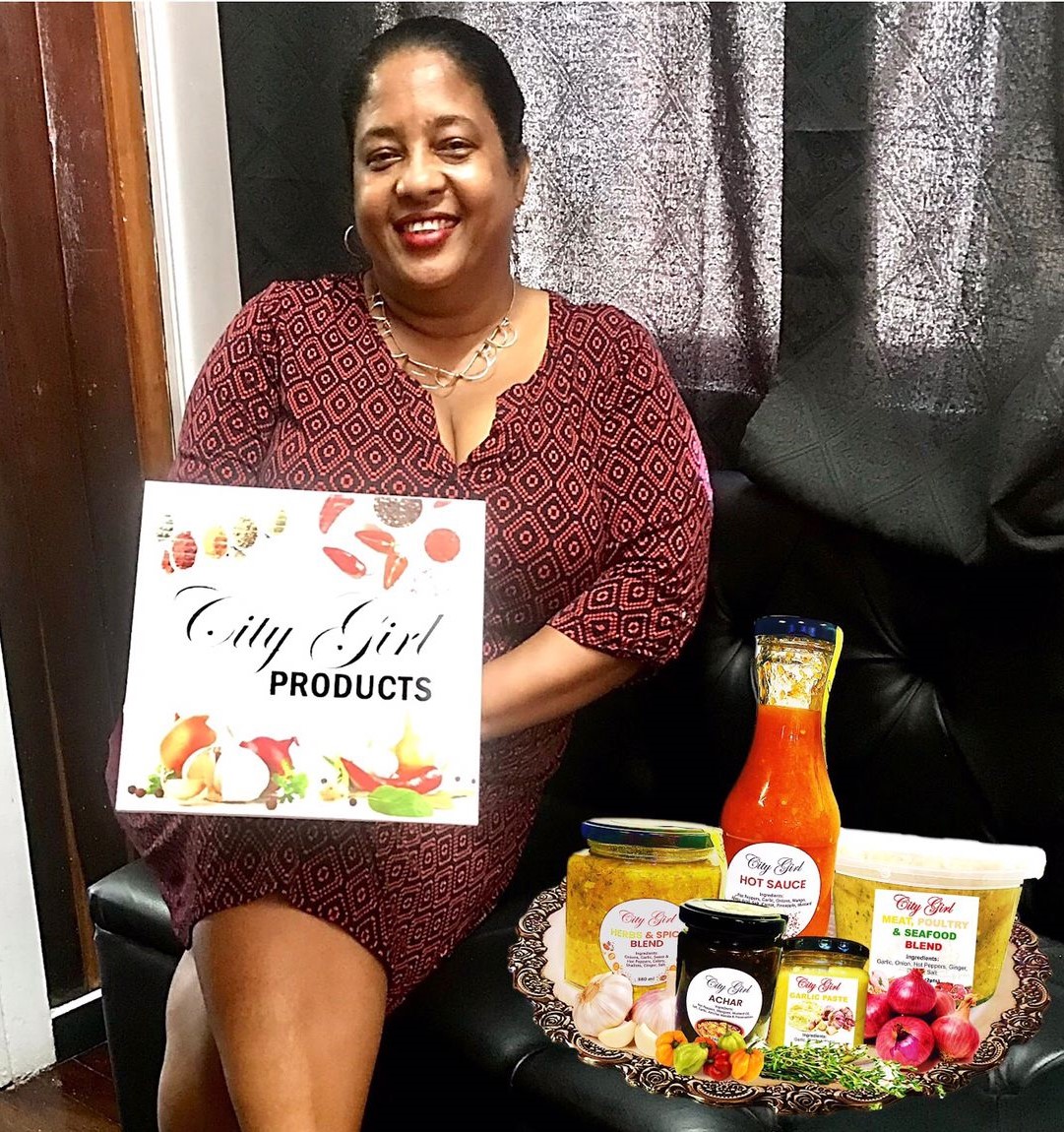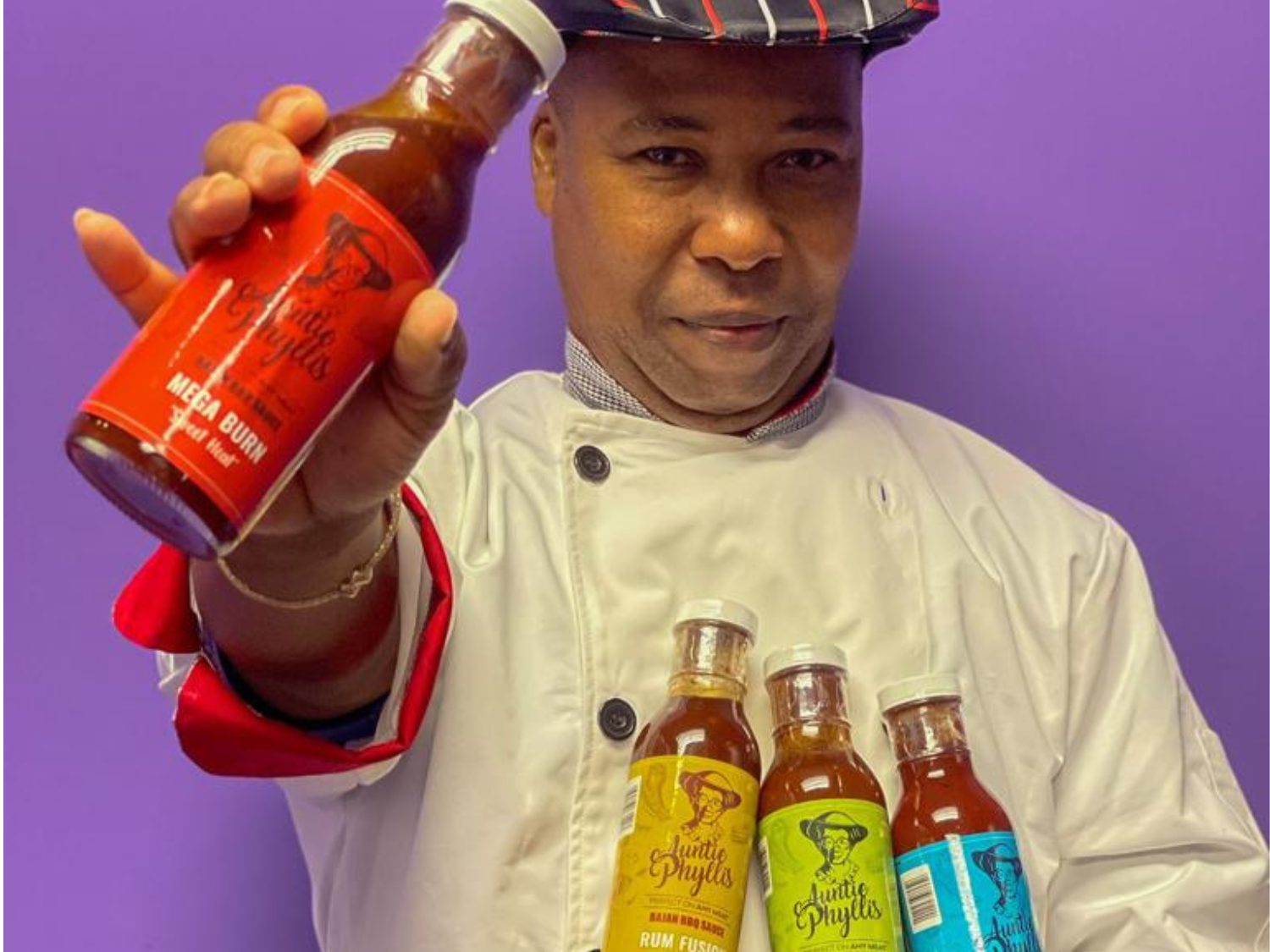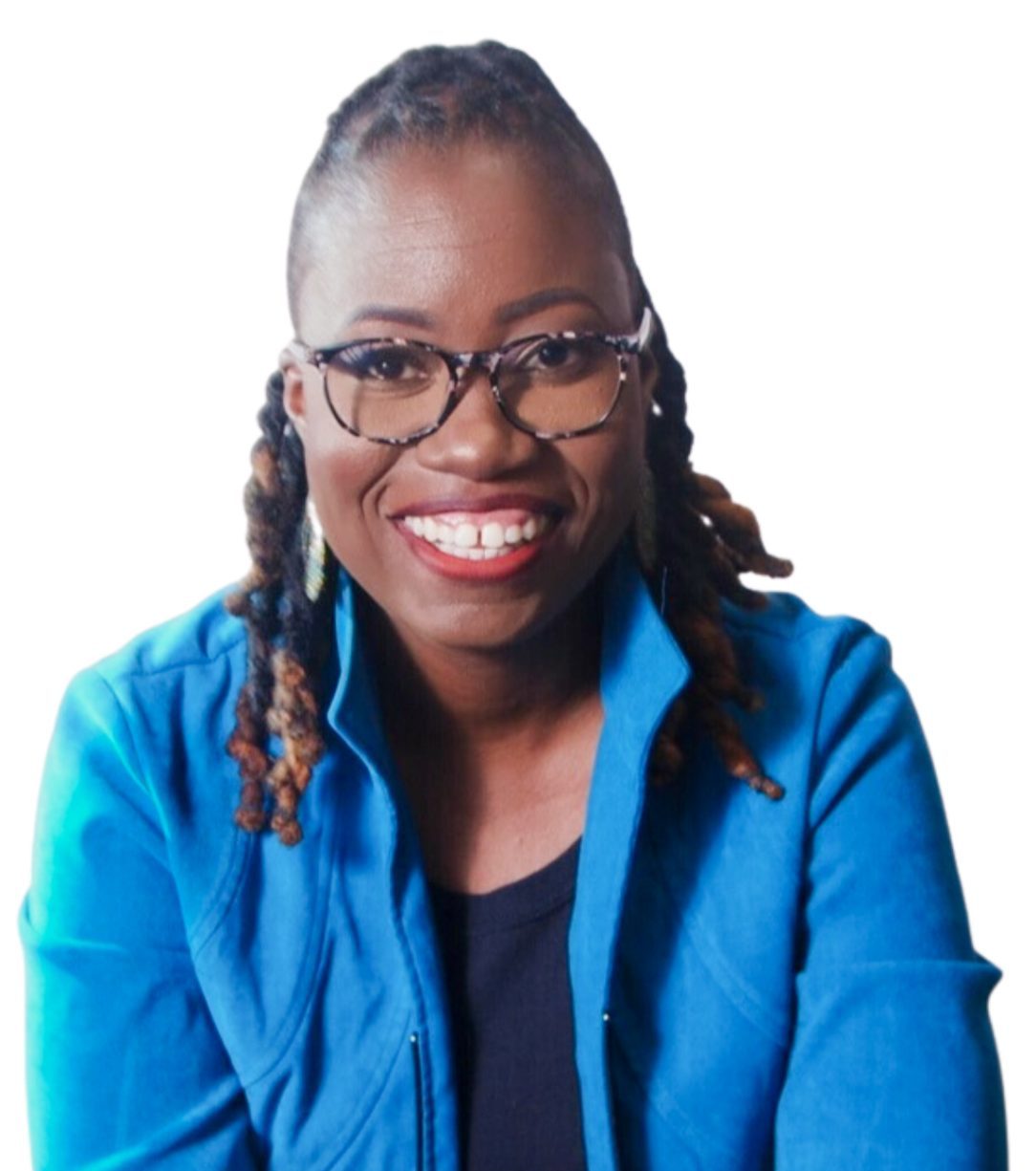Caribbean food is loved around the world for its taste, fresh ingredients, and special blends of seasoning.
Turmeric, ginger, cumin, thyme, nutmeg, cinnamon, and red pepper are just some of the herbs and spices that you will find in cupboards in most domestic and commercial kitchens around the region.
Many Caribbean cooks seem to innately know which flavourings to add to bring out the best in fish, meat, or vegetables. Guyanese businesswoman Christine Sinyangwe also has this gift.
Christine has been cooking since she was young and has always enjoyed experimenting with different dishes as well as picking up additional tips from cookbooks and food-based shows.
Christine was in the real estate sector for years, but when that business took a downturn in 2021-2022 and she was left with just $5,000 (GUY) to her name (equivalent to about $25 (US)), she decided to put her knowledge, experience, and passion for cooking to use and start her own food manufacturing business.
Initially, Christine made her unique blend of herbs and spices at her home in very small batches and only sold it to friends, family, and neighbours and at a local market.
Then, as she carried out some more research into labelling and bottling, Christine’s confidence developed and eventually she marketed her product as an all-purpose blend before adding a more concentrated version for meat, vegetables, and fish. She also created a hot pepper sauce.
As the business started to grow, Christine realised the potential for her products, and sought business advice from the Guyana Marketing Co-Operation. In the summer of 2023, Christine officially registered her ‘City Girl’ brand.
As a small business owner, Christine says she is always looking at ways to reduce her overheads, so she was happy to be invited to take part in an ISO 50001 Energy Management Workshop by the Guyana Office for Investment, which was hosting the event in collaboration with the Caribbean Export Development Agency and Republic Bank Guyana.
The three-day workshop aimed to help small and medium sized enterprises (SMEs) align with ISO 50001 compliance standards and teach them ways to effectively enhance their energy efficiency. It also outlined how SMEs could leverage energy reduction techniques and introduced participants to renewable energy opportunities to enhance global competitiveness.
Christine says the workshop opened her eyes to the various ways she could reduce her energy consumption and cut her bill. She has since implemented some small but significant changes including replacing her regular lightbulbs with energy efficient ones and making more use of natural light by working primarily in the day rather than at night.
Christine is also looking at buying a solar-powered garlic peeling machine for $100,000 (GUY). She works on her own and says hand preparing her ingredients takes most of her time. She soaks the ginger and garlic to make it easier to remove the skin, but a machine will get through thousands of garlic pieces in a day.
Industrialisation will also free Christine up to work on new products like her recently launched Guyanese Achar condiment made with tamarind and mangoes as well as a jerk seasoning and a chunky lime and pepper sauce which she is hoping to bring to market shortly.
“I definitely want to bring in some industrial equipment that runs on solar,” Christine says. “I’m currently looking around, speaking to people in that field, and doing my own research as well. I want to get something that will last because it is a big investment but within a couple of months, I will have made that change.”
She adds: “Venturing into machination is important for me. It’s hard to find good staff so I prefer to work by myself for now and use industrial equipment to make the preparation easier. I currently make 30 batches of each product a day but of course machinery will help me to scale up because I would like to start selling in more outlets in Guyana and add more products.”
Expanding her product line is Christine’s priority right now. She also wants to enhance her marketing efforts through traditional media and online so that one day ‘City Girl’ can become a household name at home and abroad.


